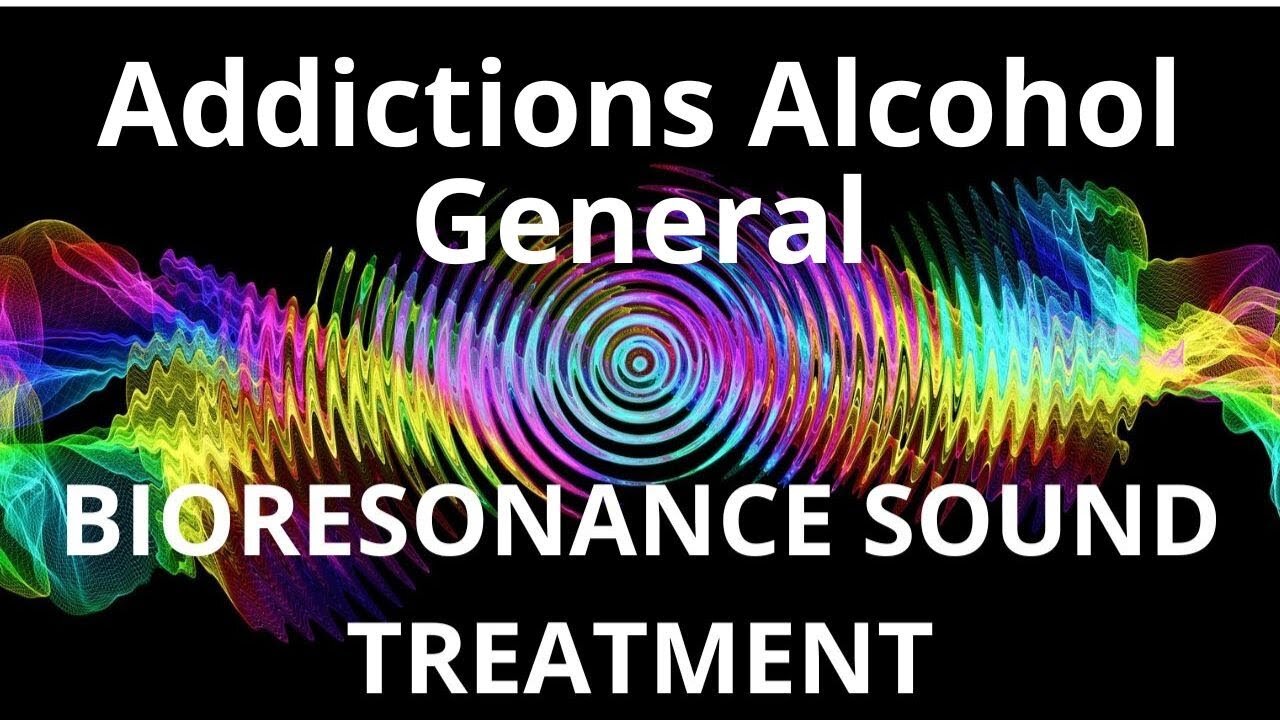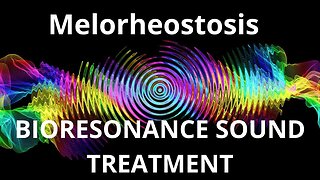Premium Only Content

Addictions Alcohol General_Sound therapy session_Sounds of nature
#resonantfrequencysoundtherapy #addictiontreatment #alcoholtreatment #adjunctivetherapy #alternativemedicine #traditionalmedicine #holisticapproach #integrativetreatment #mentalhealth #wellness
Addiction to alcohol is a complex and challenging condition, affecting millions of people worldwide. While conventional medicine plays a vital role in treating alcohol addiction, incorporating complementary therapies can enhance the overall effectiveness of treatment. Resonant frequency sound therapy, a holistic approach rooted in the power of sound vibrations, has emerged as a promising adjunctive treatment for alcohol addiction.
Resonant frequency sound therapy is a non-invasive treatment that harnesses the power of sound vibrations to bring the body and mind into a state of balance and harmony. It involves using specific frequencies and tones to stimulate the body's natural healing process. By targeting the body's energy centers and promoting relaxation, resonant frequency sound therapy aims to reduce stress, anxiety, and cravings associated with alcohol addiction.
Alcohol addiction often coexists with emotional imbalances, such as anxiety, depression, and trauma. Resonant frequency sound therapy has shown remarkable benefits in alleviating these emotional burdens. The vibrational frequencies used in sound therapy help release emotional blockages, promoting a sense of calmness and emotional stability. This therapy can complement conventional treatment by addressing underlying emotional issues and supporting individuals in managing their triggers and cravings.
Stress and anxiety are common triggers for alcohol relapse. Resonant frequency sound therapy offers a powerful tool to reduce stress levels and promote relaxation. The therapeutic frequencies used in sound therapy have a calming effect on the nervous system, helping individuals experience deep relaxation and inner peace. By incorporating sound therapy into traditional treatment approaches, individuals struggling with alcohol addiction can better manage stress, leading to a higher likelihood of long-term recovery.
Recovery from alcohol addiction requires developing mindfulness and self-awareness. Resonant frequency sound therapy can play a significant role in enhancing these essential skills. The meditative nature of sound therapy allows individuals to connect with their inner selves, fostering self-reflection and self-discovery. By deepening their understanding of triggers and patterns associated with alcohol use, individuals can develop healthier coping mechanisms and make more conscious choices in their recovery journey.
Alcohol addiction can take a toll on the body, leading to various physical health issues. Resonant frequency sound therapy can contribute to the physical healing process by promoting relaxation, reducing inflammation, and improving sleep quality. By addressing the physical aspects of addiction, sound therapy can augment the effects of conventional medicine, facilitating a comprehensive and holistic approach to recovery.
Conclusion:
Resonant frequency sound therapy offers a unique and powerful approach to complement traditional medicine in the treatment of alcohol addiction. By harnessing the healing power of sound vibrations, this therapy enhances emotional well-being, reduces stress and anxiety, promotes mindfulness, and supports physical healing. Integrating resonant frequency sound therapy into conventional treatment approaches can pave the way for a more comprehensive and effective recovery journey.
TO ACHIEVE A POSITIVE RESULT, DAILY LISTENING TO VIDEOS IS REQUIRED.
I wish you health and prosperity!
You can purchase unique medicines in my store:
https://store11998180.company.site/
You have the opportunity to support the channel:
https://destream.net/live/RadSiarAl/donate
-
 30:00
30:00
BIORESONANCE SOUND THERAPY
11 days agoMelorheostosis _ Sound therapy session _ Sounds of nature
731 -
 1:55:52
1:55:52
BlackDiamondGunsandGear
1 day agoGlocks Want Gun Control? // Trump Tramples on your Rights? // After Hours Armory
19.6K2 -
 1:55:52
1:55:52
DLDAfterDark
8 hours ago $0.91 earnedDLD Live! Trump - Flag Burning - Glock & Gun Control - Martial Law Light?? - After Hours Armory
12.7K -
 13:46:18
13:46:18
GritsGG
14 hours agoRumble Customs! 3515 Ws! 🫡!
84.8K -
 5:59:47
5:59:47
SpartakusLIVE
9 hours agoThe HUGEST Brain (not forehead) delivers Saturday SPARTOONS || Variety Later - Shadow of Mordor
186K4 -
 2:34:20
2:34:20
Barry Cunningham
10 hours agoPRESIDENT TRUMP WELCOMES FOOTBALL SEASON! AND MORE BREAKING NEWS!
80.4K48 -
 54:47
54:47
Side Scrollers Podcast
14 hours agoSide Scroller Presents KING OF THE KART | MASSIVE MARIO KART TOURNAMENT
46.8K -
 4:12:33
4:12:33
Mally_Mouse
14 hours ago🔥🍺Spicy HYDRATE Saturday!🍺🔥-- Let's Play: Baldur's Gate!
37.5K3 -
 2:26:32
2:26:32
BooniesHQ
9 hours agoGame Of SKATE Shaun Hover Vs. Jeff DeChesare: Boonies Skate Night 1
110K6 -
 3:56:19
3:56:19
MissesMaam
4 hours agoAmong Us 3D (ft. Rumblers) 💚✨
12.8K1